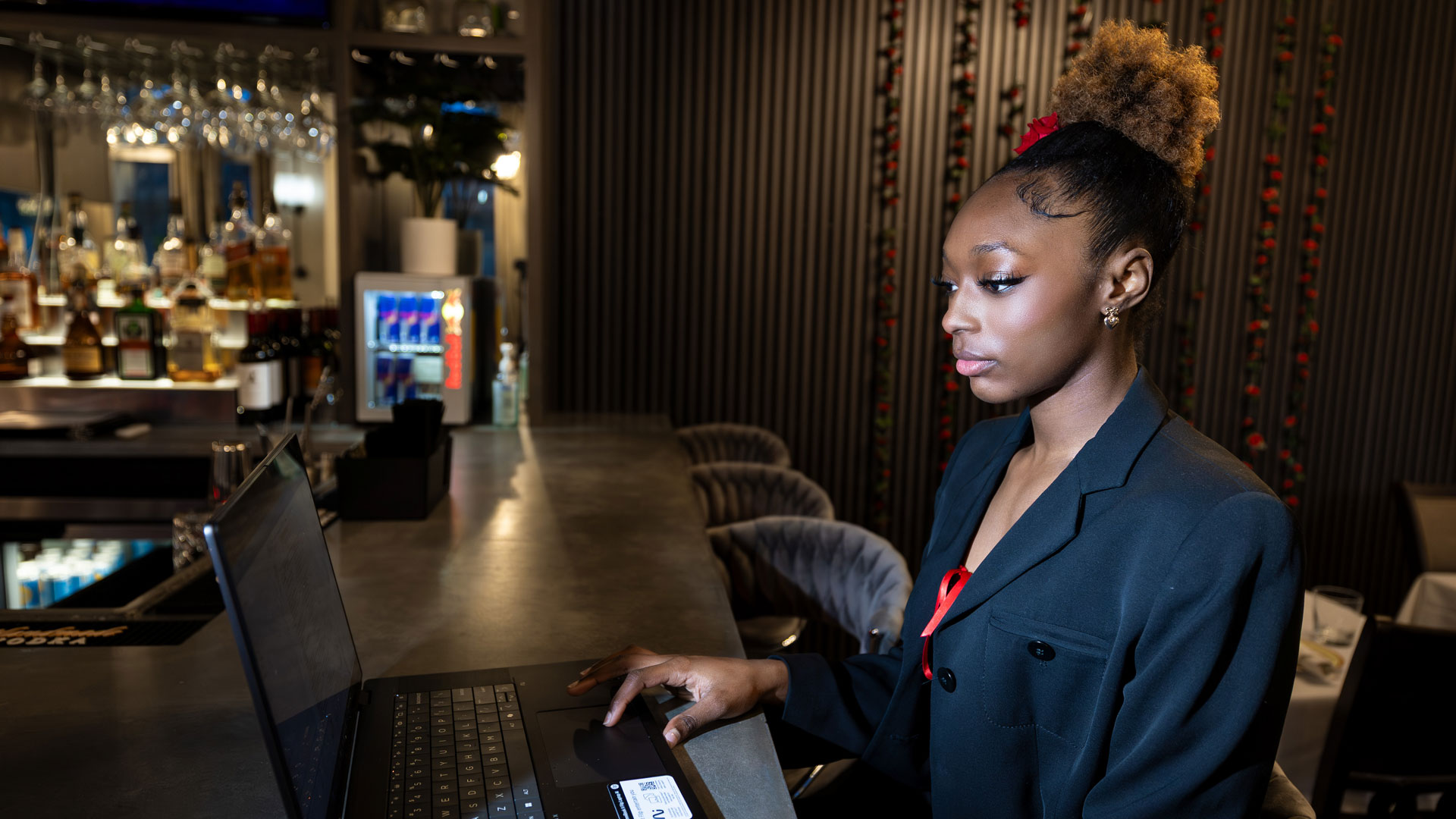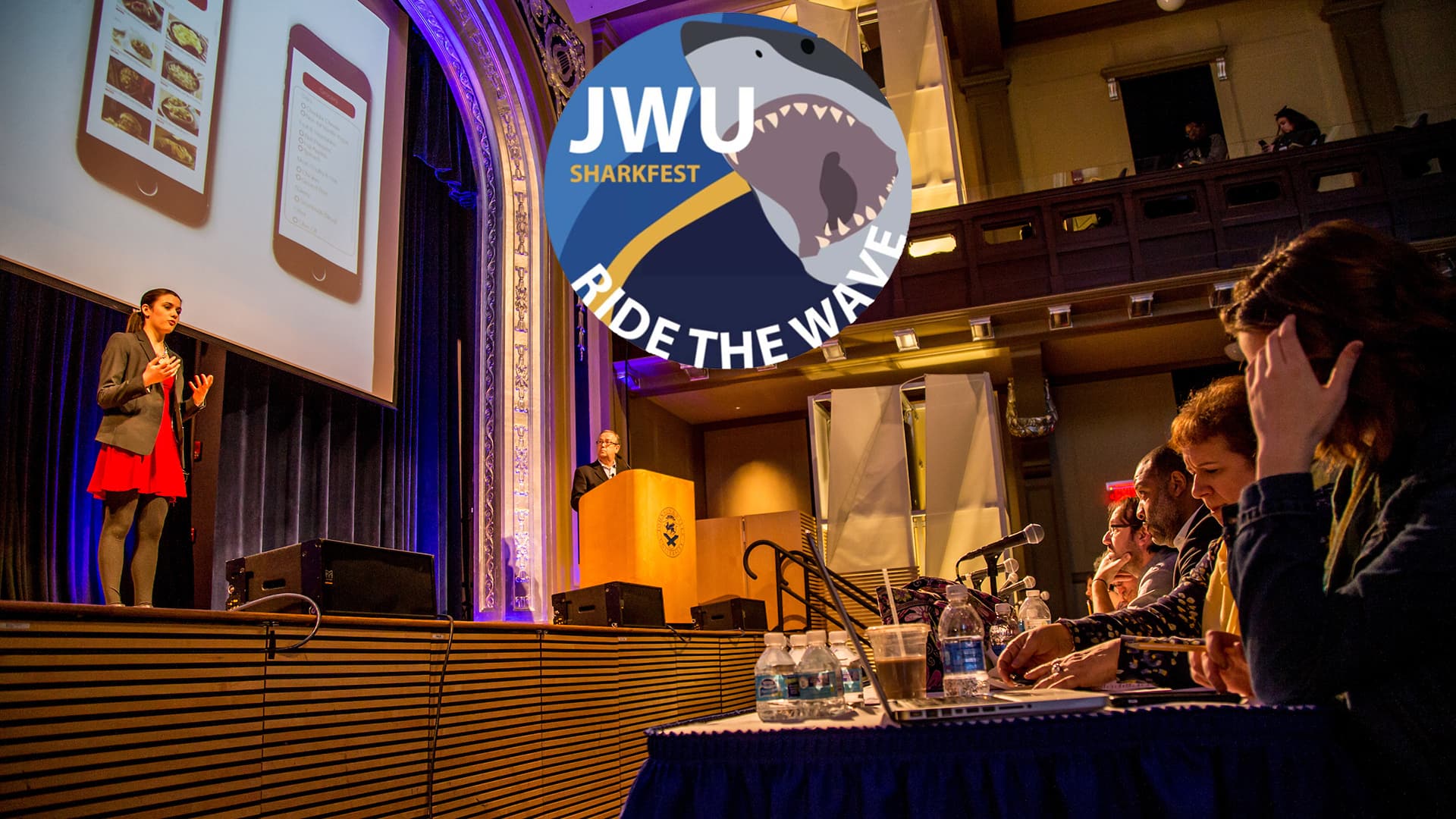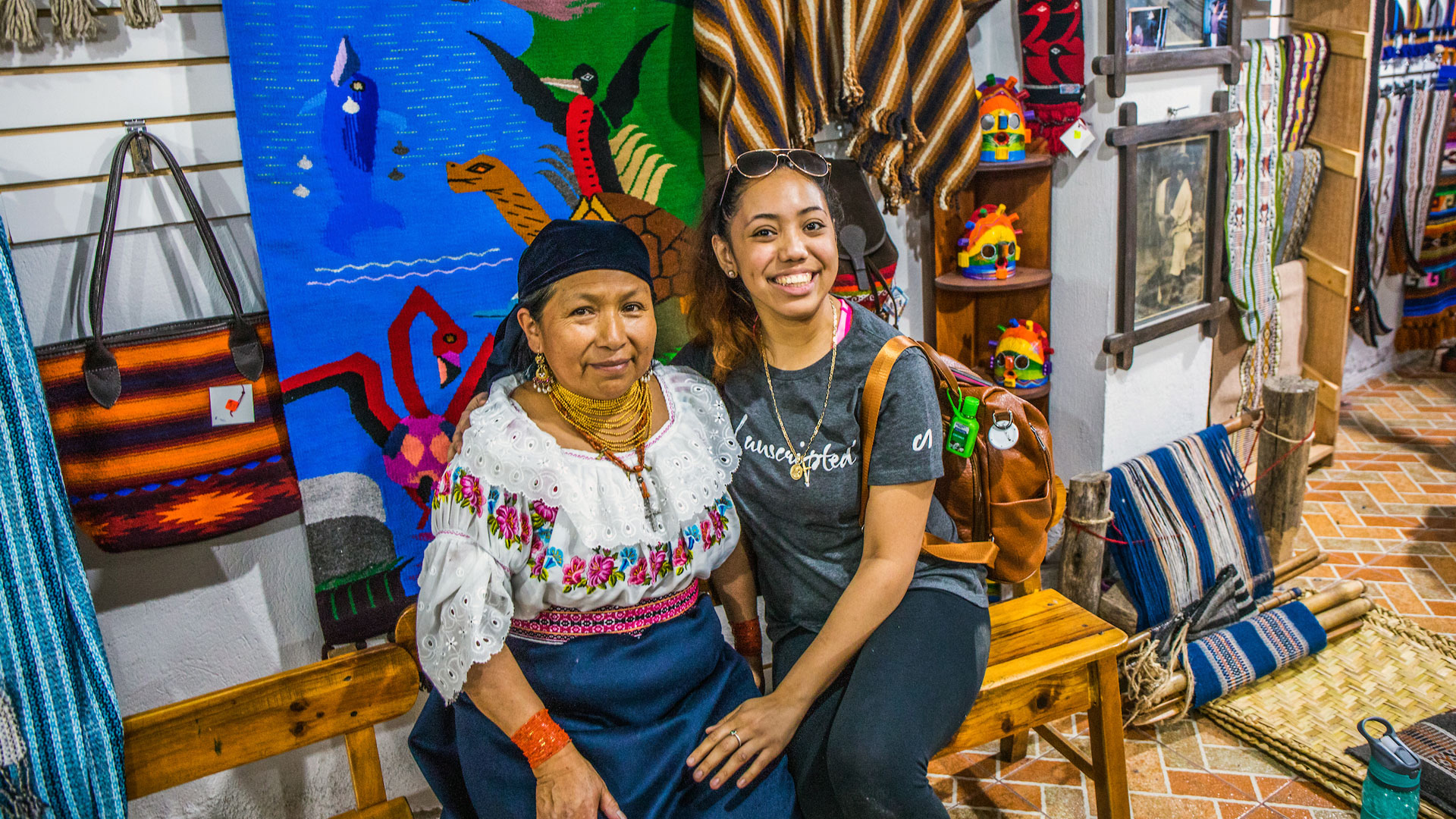Sharkfest 2020 Gives JWU Student Entrepreneurs an Edge
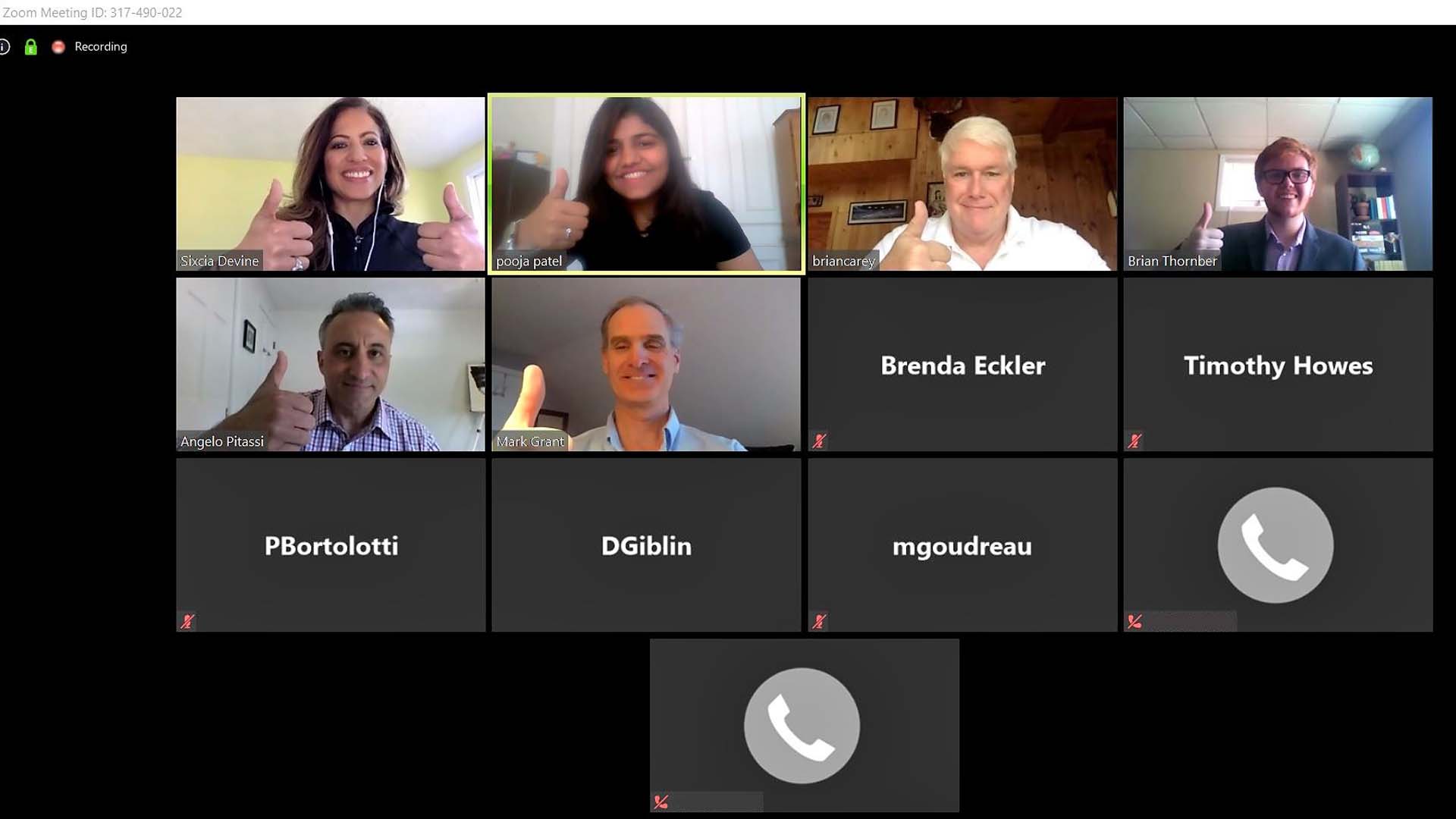
If anyone told students participating in this year’s Sharkfest that they would be pitching their ideas via Zoom, they probably wouldn’t have believed it. But that’s exactly what ended up happening last week, when instead of presenting in front of a live audience at Schneider Auditorium, they each presented in isolation.
With 120 seconds to sell their business ideas to the four judges, the competition was intense. In the end, Brian Thornber ’21 won the $5,000 first place prize for his Bloodhound Mask, a mask that alerts first-responders to harmful contaminants. Amanda York ’22 earned second place, and a $2,500 prize, for her pitch for Scarred Beautifully, a company with a focus on clothing for people living with ostomies. The remaining three finalists received $1,000 each for their participation: Matthew Lamoureux ’20 Entrepreneurship, Nina Guidaboni ’20 Sports, Entertainment, Event — Management and Brandon Brown ’21 Management & Entrepreneurship.
First Prize: Bloodhound Mask
To prepare for the competition, Thornber, an Integrated Product Design major, says he turned to his advisor Walter Zesk, an assistant professor at the College of Engineering & Design. “He helped me turn a basic concept into a full-fledged product. In order to get ready for the final pitch, I had taken apart previous prototypes and built one refined prototype from resources I had available to me.”
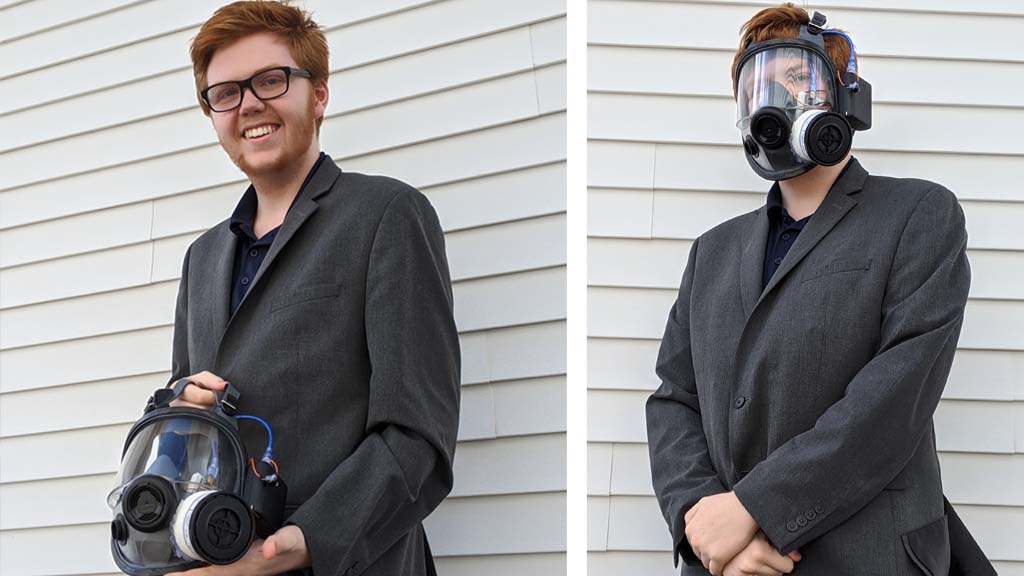
Thornber started working on the Bloodhound Mask back in 2019, when along with other JWU students he participated in YHack, a hackathon at Yale University. “I had the original idea for the mask [then], and with the help of my group we were able to execute an initial prototype and bring home a first-place win. Since then, I’ve taken my original concept, refined the idea and created additional prototypes to turn it into what it is today,” he says.
“Participating in Sharkfest 2020 was a great learning experience,” says Thornber. “I was able to take my background in product design and fuse it with my knowledge of entrepreneurship to create a solid and well thought out pitch. It’s great to see all my hard work pay off!”
His goal with this mask is to protect users in high-risk situations where there’s no guarantee the air breathed in is actually clean. “Problems that can be detected with the Bloodhound mask include, leaks, punctures, tears, and faulty filters. It has the possibility to be used by firefighters, DEM workers and manufacturing workers,” he adds. He’s in the process of acquiring a patent for the mask, and will put his prize money towards filing fees.
It could be a gamechanger for fire fighters and first responders.
Zesk is proud of how far Thornber’s work has come. “The mask has a sensor on the inside, so it actually detects if the wearer is breathing anything dangerous. All other mask sensor systems are outside and not actually able to detect how the mask is performing. It could be a gamechanger for fire fighters and first responders.”
Dean Frank Tweedie agrees. “Brian is the epitome of our students, creative, hard-working, and possess a high level of social consciousness. He’s worked hard over the years to expand his concept and develop a working prototype. This award will help him move to the next level.”
Second Prize: Scarred Beautifully
Amanda York will also use the money she won at Sharkfest to take her business idea to the next level.
“Scarred Beautifully is something that I created after years of struggling with living with an ostomy. For over ten years I struggled with loving myself and seeing that I had any beauty at all,” York says. “When JWU came out with Sharkfest, I felt it would be a great way to get constructive feedback on my business idea and begin raising awareness.”
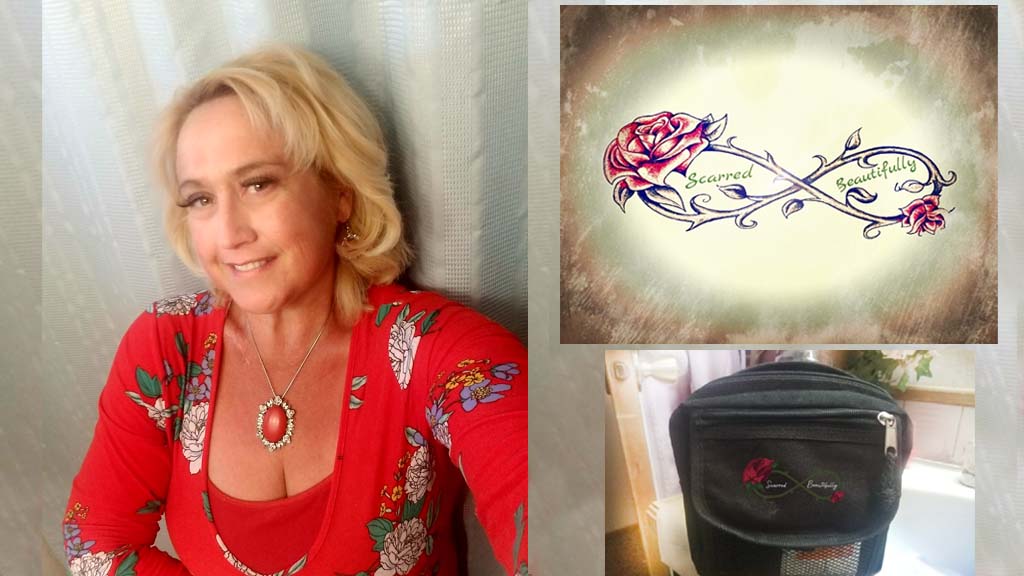
A Psychology major with JWU’s College of Online Education, York hopes her own experiences help and inspire others living with ostomies. “Changes in life affect each one of us differently, yet the one thing I am certain of is life with an ostomy is challenging, internally and externally.”
According to York, Scarred Beautifully will offer helpful tips on living comfortably with an ostomy, new product information with testers distributed, clothing and lingerie to help with confidence and style, stylish personal developed ostomy bags and travel kits. “My hope is that what Scarred Beautifully will have to offer will be endless,” she says.
For York, participating in the competition virtually came with its own set of challenges. “I live in a small country town in northern Arizona, which is a remote area. Internet reception is so difficult to get where we live. The saving grace is that I visit the hospital a few times a week for my health and they have great internet,” she says adding that on the day of the event she did part of the presentation on the phone and part on Zoom. “All the judges were so patient and understanding. I could not have asked for more than they gave me that day.”
Sharkfest Goes Online for the First Time
Sharkfest judges Sixcia Devine, Angelo Pitassi, Mark Grant and Brian Carey also had to adapt quickly to hosting the competition virtually.
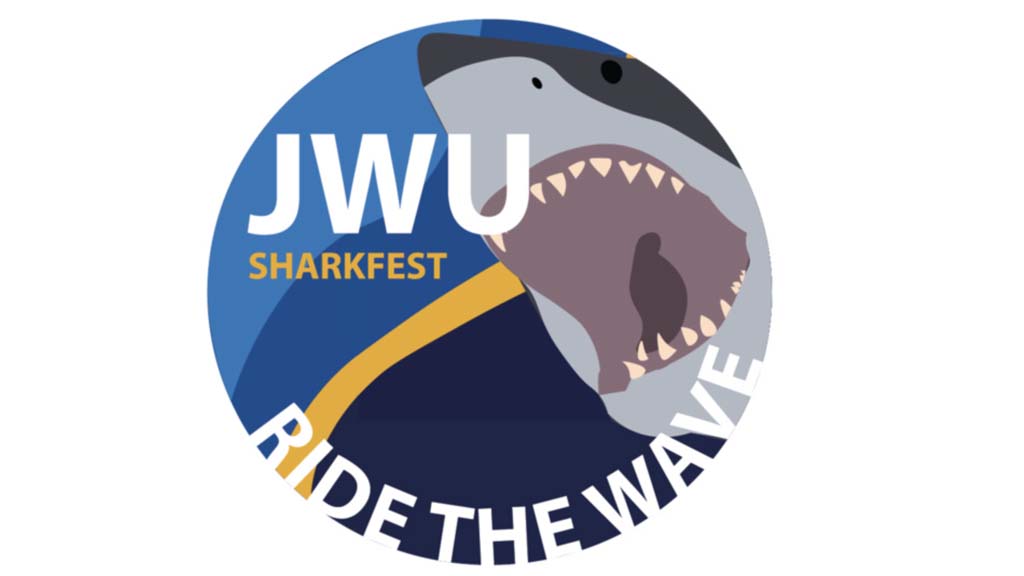
“To say this was a team effort across all of the colleges and departments in the university would truly be an understatement,” says Karen Silva, Ed.D., event co-chair and professor in the College of Business, of the first ever virtual Sharkfest event.
Silva says when JWU moved online due to COVID-19, the event morphed into a series of virtual presentations evaluated by the judges. “All pre-planning had been completed for the Schneider Auditorium event prior to [the] virtual event, which truly was a whole new world. However, everyone took a deep breath and made the difficult decision that “the show must go on” because the five finalists deserved a chance to compete.”
All in all, it was a tremendous success.
Associate Professor and event co-chair Timothy Howes shares Silva’s view of the event. “The quality of the contestants was palpable. We needed a total 10 applications in order to run Sharkfest 2020. We ended up with 22, many of which were very strong. We had a wonderfully challenging time narrowing it down to five finalists. And those five finalists were outstanding as proven by the difficulty the judges had in selecting the first-place and second-place winners. All in all, it was a tremendous success especially in light of external factors impacting the ability to pull this off,” he says.
